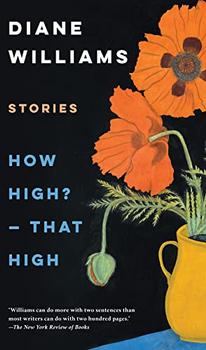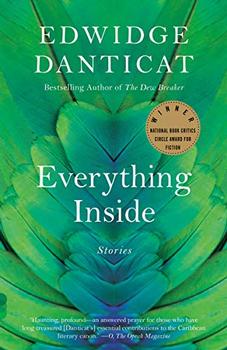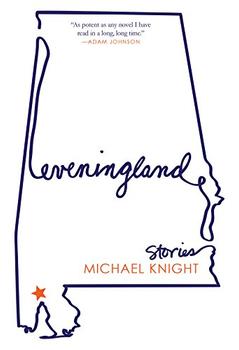Summary | Excerpt | Reviews | Beyond the book | Read-Alikes | Genres & Themes | Author Bio

Reading Diane Williams' How High? -- That High is like when you're walking in the mall or down an aisle in the supermarket and you overhear an argument or a strange conversation. It's not polite to linger, yet you can't help but wonder what else was said and how it ended.
Williams' short stories work much the same way, though instead of moving on because it's the polite thing to do, she gives just enough in a scant few pages that the reader lingers after the final sentence. Have you read it right? Did Tim and Valentina really start dating in the course of a mere sentence in "Grief in Moderation"? Go back over it. There's enough space for you to do so, since the story itself hasn't taken up much. You might wonder, what is Williams after?
She examines her characters' lives with the storytelling equivalent of a jeweler's loupe, looking at distinctly individual moments that are common to all of us, but not often thought of in the way she presents them, because we're so busy. The questions linger and sit in the back of the reader's mind, and are brought to full attention here. "Upper Loop," the first story, presents this as its final sentence: "God forbid—so I scale the roof all the way to the ridge and I have never had to climb back down." Williams leaves it to us to wonder if the roof scaled is metaphorical or literal.
In "Tale of Human Adventure," an unnamed man recounts how an unnamed woman approached him, and then Williams subtly twists the story by revealing that what we've been reading all along is actually a work of fiction written by her narrator — an unreality within an unreality. It doesn't feel like Williams writes like this to see if we're paying attention. She just has so many other stories to tell. In each one, we need to look, really look, pay attention, really pay attention. In "Popping," if read too quickly, the reader might miss a character's death, because the tiny details in the story are crucial to seeing the whole. What the author expresses here happens in real life, too. What's right in front of our faces may not be understood immediately, and there can be a moment that gives us pause as we finally figure it out.
Williams is an interesting storyteller working in the genre of flash fiction (see Beyond the Book). In a mere three pages of the story called "Outcome," she pinpoints the uncertainties within a marriage, and in particular, how a person thinks they should feel toward their spouse versus what they actually feel at any given moment. The questions Williams poses here and in so many of her other stories point to our basic humanity in its innumerable shades, in how we seek to live, how we actually live, what we want, what we actually get (which may lead to what we want or just what we have to live with), what is thoroughly unimportant even though we treat it as important, and what is actually important. And still so much more.
We are not alone. Williams shows that through her stories. It's up to the reader to fill in the rest.
![]() This review was originally published in The BookBrowse Review in January 2022, and has been updated for the
October 2022 edition.
Click here to go to this issue.
This review was originally published in The BookBrowse Review in January 2022, and has been updated for the
October 2022 edition.
Click here to go to this issue.

If you liked How High? -- That High, try these:

by Edwidge Danticat
Published 2020
From the internationally acclaimed, best-selling author of Brother, I'm Dying, a collection of vividly imagined stories about community, family, and love.

by Michael Knight
Published 2018
These stories, told with economy and precision, infused with humor and pathos, excavate brilliantly the latent desires and motivations that drive life forward.
Your guide toexceptional books
BookBrowse seeks out and recommends the best in contemporary fiction and nonfiction—books that not only engage and entertain but also deepen our understanding of ourselves and the world around us.